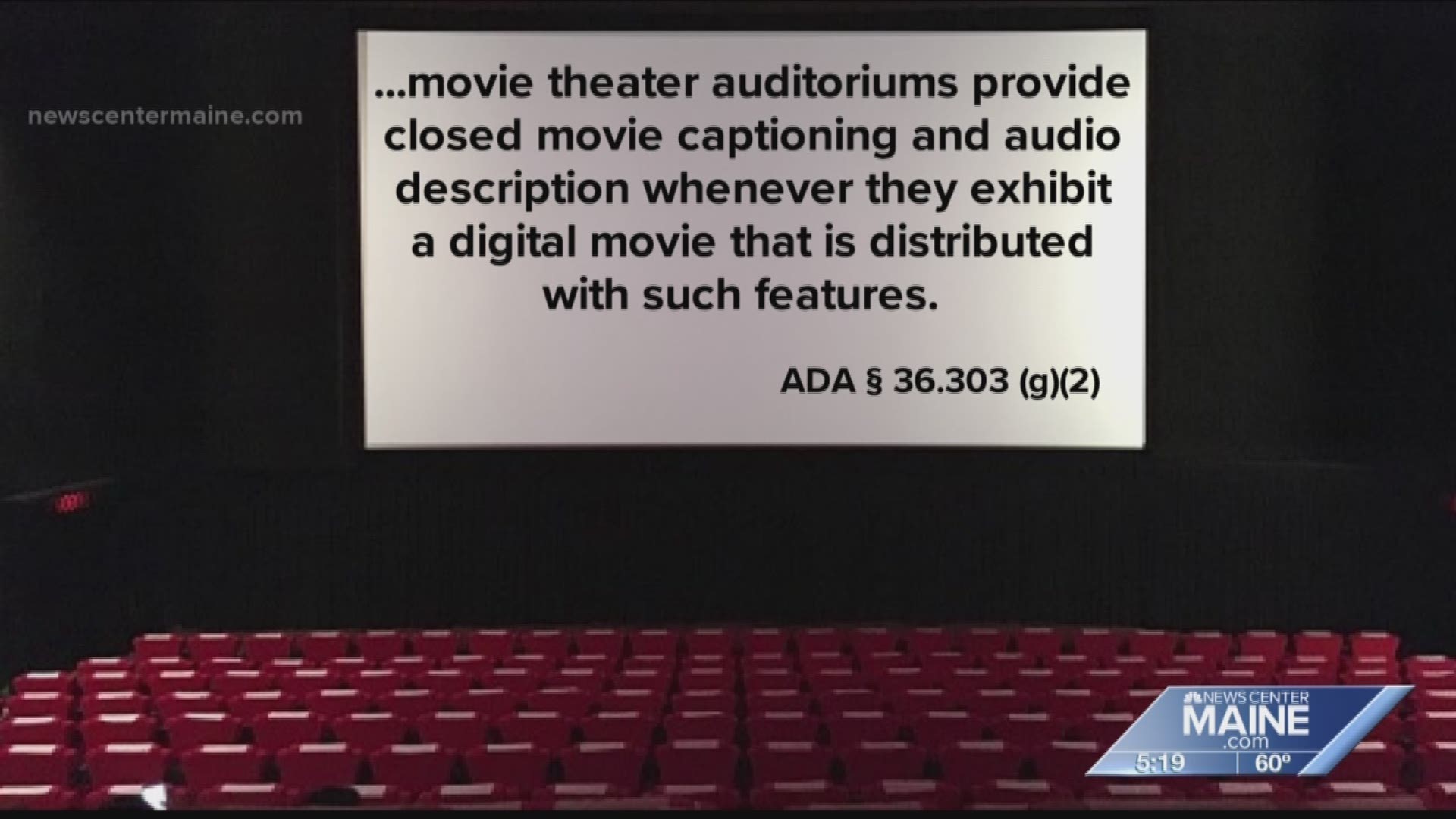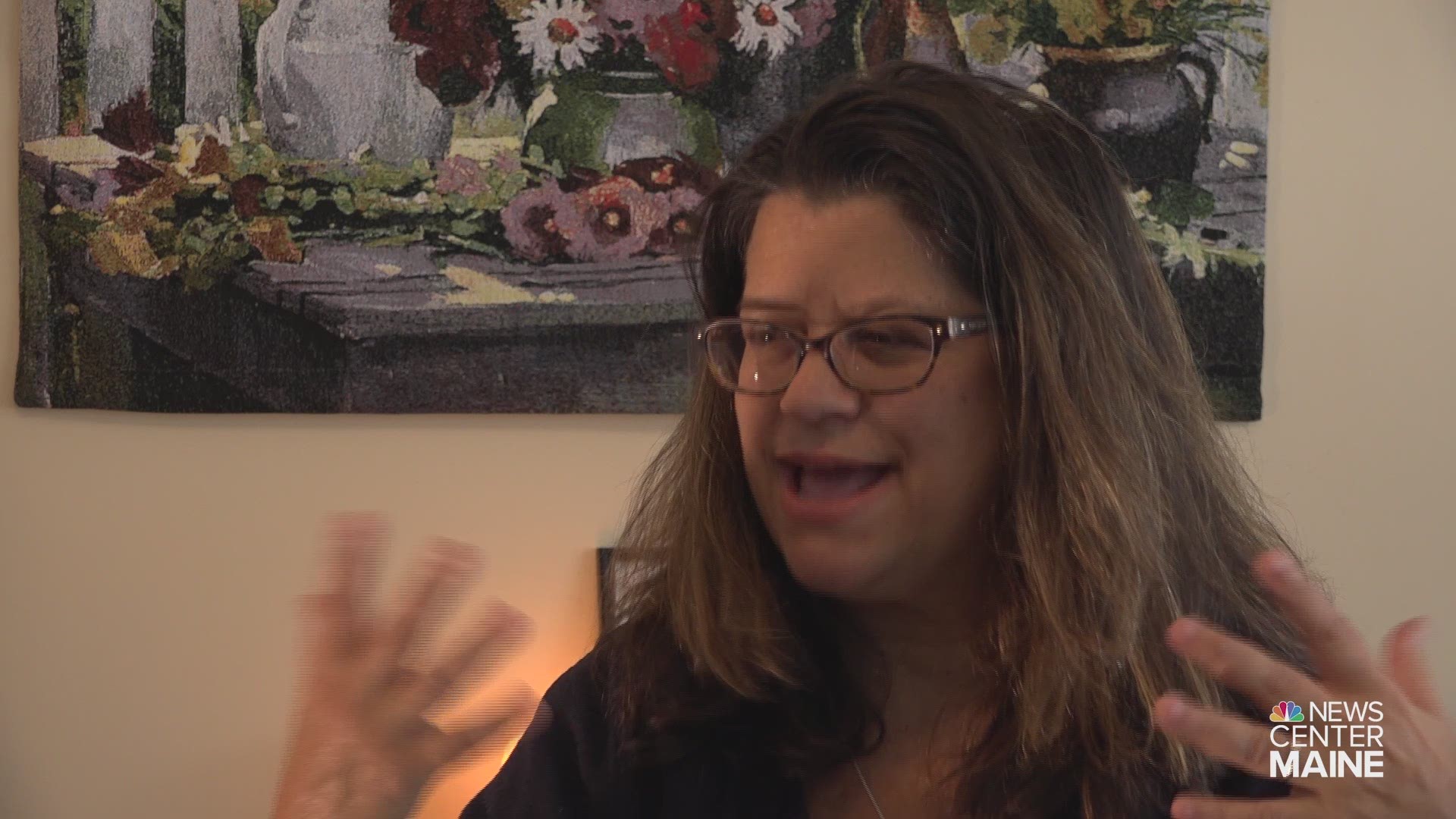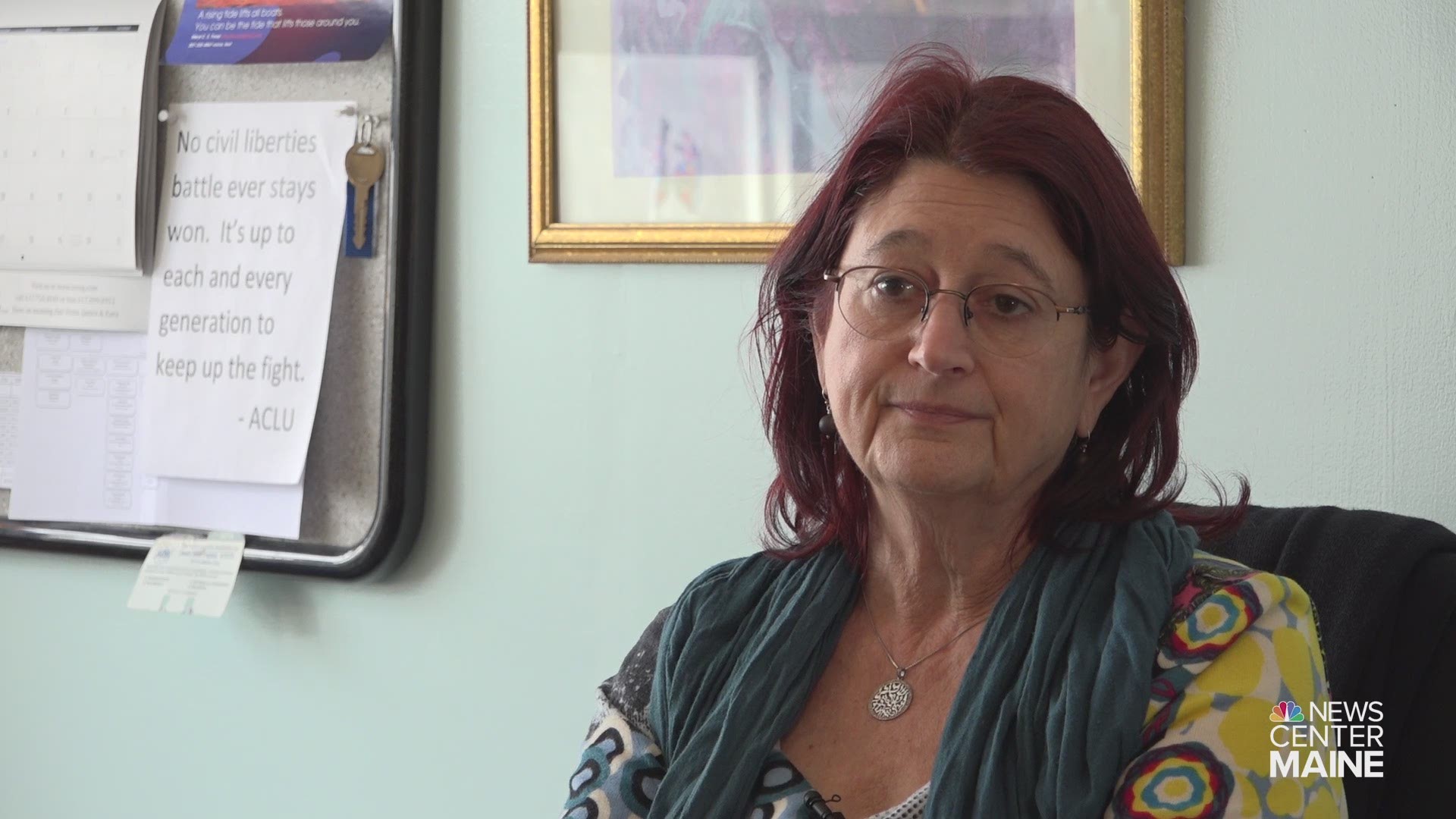The time has arrived for summer blockbusters to do their best to bring in moviegoers during a season most of us want to spend outside. But going to a local movie theater is something most of us take for granted, especially if you have the ability to hear.
Back when Black Panther was inescapable upon its release February 16, the record-breaking film turned social media into a frenzy. Upon all the praise, one tweet, in particular, stood out like a sore thumb.
“10 minutes into Black Panther, I had to leave,” it read. “It was awful.”
Deaf model Nyle DiMarco wasn’t talking about the movie. He was talking about the closed captioning device at an AMC Theater.
“Kept skipping lines. The difference of focus while switching gave me a headache,” he tweeted. “And I kept missing important scenes. AMC Theaters made me feel SO disabled.”
He later said his experience was the main reason why he doesn’t go to the movies to begin with, and said theaters “are basically for all the able-bodied people.”
Deaf Mainers are no different from DiMarco.
“That CaptiView device, you have to carry into the theater, along with your popcorn and your soda and your purse, and carry this big thing on a stick and stick it in the cupholder,” said Roxanne Baker of Portland. “Plus there are people sitting behind you who are overseeing the captions over your shoulder, and they sometimes get annoyed and find it too distracting.”
Baker is Deaf and is an American Sign Language instructor at the University of Southern Maine. Her first time going to the movies was as an adult after the Americans with Disabilities Act passed in 1990.
By law, movie theaters, like all public places, need to accommodate those who are deaf and hard of hearing. Meryl Troop, Director for Deaf Services for Disability Rights Maine (DRM) says compliance is spotty.
“Sadly, there really is no enforcement mechanism for any aspect of the Americans with Disabilities Act,” she said. “It is solely complaint driven.”
DRM filed two complaints in recent years to the Maine Human Rights Commission on behalf of deaf individuals who came forward to complain about theaters not being accessible.
“They just had no devices,” she said. “One was new construction, and another was a theater that just flat out said they would not provide any captioning and gave no real reason for refusing to do so.”
One of those theaters was Nordica Theater located in Freeport.
“Brand new construction of new theaters and they would not dream of having a movie theater that was not wheelchair accessible,” Troop said, “yet [they] never built in any accommodations for captioning.”
Nordica Theater eventually complied and now provides captioning, as listed on its website and in its recorded greeting by phone.
General Manager Dennis Levasseur, not in a managing position at the time, could not specifically comment on the complaint but offered his thoughts on if he thought it was fair Deaf people have to have a minimal experience compared to those who can hear.
"I think it's a complicated situation because the rules and regulations are to make it so it minimizes the impact on anyone with any degree of disability," he said, "and there are multiple types of disabilities that are there. They want to try and make it so the experience is something that is enjoyable for as wide a range a demographic as possible."
The other complaint was filed against Nickelodeon Cinemas in Portland. Troop said it didn’t put up much of a fight and was quick to install accommodations.
“I’ve also heard from movie theater owners that this is yet one more difficulty that they need to work through,” said Troop. “I get that being a business owner can be very difficult, especially if it’s a small theater. In rural places, I’m sure there’s not a lot of profit margin.”
The Justice Department took those factors into account in their final ruling for Title III of the ADA, which has specific requirements for captioning in theaters. If a movie theater cannot afford to comply with the requirements, it is only obligated to comply to the best of its ability.
Prices for closed captioning devices range anywhere from $400 a pop to $7,500 per auditorium.
For the rest of the theaters who can afford it, they have until June 2 to show movies with closed captioning and audio description for all screenings. If a theater has two to seven auditoriums, it needs at least six devices available. For theaters with between eight and 15 auditoriums, they need at least eight devices.
Open captioning is not required.
NEWS CENTER Maine followed Baker inside Nickelodeon Cinemas to experience what it’s like as a person who is deaf to go to the movies. For the most part, it was without trouble.
Baker signed for Black Panther at the box office, which the employee quickly understood. Within a minute, she had her ticket and was on her way to the concession to get her closed-captioning device.
The employee behind the counter was visibly a bit flustered, but after a few tries was able to understand Baker’s needs. After retrieving the device, an awkward moment -- he gestured for headphones, wondering if she needed those too.
“You often encounter folks who are really nervous and intimidated by communicating with a person who is deaf,” said Terry Morrell, Director of the Division for the Deaf, Hard of Hearing and Late Deafened for Maine. “That can be intimidating to the individual and they panic and back away.”
Nickelodeon Cinemas did not return our calls requesting an interview.
The Cinemagic in Westbrook, however, offered a different experience for Baker. One that never made it past the box office; she was told, after communicating back and forth on a piece of paper, that captioning was only available in three auditoriums, and the movie she wanted to see wasn't available.
While Baker gives credit to theaters doing their best to comply with the ADA, if she had it her way, she would have open captions in all movie screenings.
“Technology is so advanced, there’s absolutely no reason why captioning should not be provided,” she said. “Why are we constantly being put on hold and not having access? Why not now?"
Morrell echoed Baker’s sentiment and said captions wouldn’t be an exclusive service to those who are deaf and hard of hearing.
“You’d be surprised at how many individuals who are not deaf would complain about the open captioning on the films. They feel it’s a visual distraction,” he said. “A lot of people don’t realize captioning can benefit any individual. It benefits children who are learning how to read or anyone who would like to learn English as a second language.”
When captioned movies are offered, they’re only offered during specific times or for specific movies, which are often limited, Morrell said.
“We need to be considerate and sensitive to everyone’s needs,” said Baker.
Below is a list compiled by DRM of theaters in Maine, with variations of compliance:
All auditoriums have caption capability:
Regal Augusta 10 - ALL Auditoriums
23 Marketplace Drive, Augusta, ME
(207) 623-8183
Digital Captioned Glasses
Regal Brunswick 10 - All Auditoriums
19 Gurnet Rd., Brunswick, ME
(207) 798-4505
Digital Captioned Glasses
Flagship Premium Cinemas - Falmouth - All Auditoriums
206 US-1, Falmouth, ME 04105
(207) 536-0828
All auditoriums have caption capability
Nickelodeon Cinema - Portland - All Auditoriums
1 Temple Street, Portland ME 04101
Movie Listing: (207) 772-9751
Manager's Line: (207) 772-4022
1 Glasses, 3 Rear Window caption screens to use in all theaters Validated parking next door in Temple St Parking Garage $3.00 flat rate with movie ticket purchase. Bring in your parking ticket.
Flagship Theater - Thomaston - All Auditoriums
9 Moody Drive, Thomaston, ME
(207) 594-4705
10 Assistive Listening Devices, six caption viewers, use in any auditorium, any show.
Smitty's Windham Cinema and Pub - All auditoriums
Windham Mall
795 Roosevelt Trail, Windham, ME 04062
(207) 892-7000
Bangor Mall Cinema 10 - More equipment on order
557 Stillwater Avenue, Bangor, ME
(207) 942-1409
Auditorium 1 - Rear Window Captioning
Not yet in compliance:
Cinemagic Movie Theater - Westbrook - more equipment on order
183 County Road, Westbrook, ME
(207) 774-3456
Open Captions films
USL Closed Captioning system (in Auditoriums 8, 11 & 15) Call to find out which movies are playing in what auditoriums.
Cinemagic Movie Theater - South Portland
333 Clark's Pond Parkway, South Portland, ME
(207) 772-6023
USL Closed Captioning system (in Auditoriums 5 & 8) Call to find out which movies are playing in the auditoriums.
Cinemagic Movie Theater - Saco
779 Portland Rd, Saco, ME
(207) 282-6284
USL Closed Captioning system (in Auditoriums 3, 9, & Imax) Call to find out which movies are playing in the auditoriums.
Small theaters with open captioning
Colonial Theater
163 High Street, Belfast, ME 04915
(207) 388-5087
Most movies subtitled on Sundays, call to find out which ones.
Lincoln Theater
2 Theater Street in downtown Damariscotta
563-3424 or visiting the theater's website at lcct.org
Railroad Square Cinema
17 Railroad Square, Waterville, ME
(207) 873-6526
Every Wednesday one or more matinee films will be shown with open captioning.
Alamo Theater
85 Main St, Bucksport, ME 04416
(207) 469-0924
Open Captions on Sundays - call on Tuesday to be sure the film has open captions.



